|
 |
Kostas Hatzis is regarded, undisputedly, as one of the best and, at the same time, most pioneer creators in the social song. He is the one who has substantially imposed the “voice-guitar” style, and for the first time he made ballads with social messages heard. He has formed, with his diachronic, 50-years’ presence, a school, and many generations of song-makers have followed his track and have accomplished important achievements in the Greek art-song of the following years.
Kostas Hatzis was born in Livadia. His grand-father was a great popular clarinettist, and his father also played very well the dulcimer. Therefore, it didn't take Kostas long to follow his family’s steps.
|
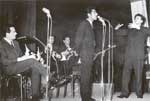 When he was sixteen years’ old, his father used to take him with him and he sang in weddings and christenings and in any other event, in which demotic, mainly, music was necessary. After a five-year itinerancy in the country, he came to Athens, where he was a stranger among strangers. Then, one of the most difficult and harsh periods of his life begins. When he was sixteen years’ old, his father used to take him with him and he sang in weddings and christenings and in any other event, in which demotic, mainly, music was necessary. After a five-year itinerancy in the country, he came to Athens, where he was a stranger among strangers. Then, one of the most difficult and harsh periods of his life begins.
It is the time when he tries to survive and to find his way. His effort entails terrible constrictions, bitterness and disappointment and soon he will realize that the path he has chosen is full of thorns and traps hidden in each step he makes. This results in him becoming one of the most representative artists of the Greek song. After 8 years full of bitterness and disappointment, he comes on the stage in the “Tipoukeitos” boite and one year latter in “Roulotta”. Two years latter it is the time for his first album and, along with it, here comes the recognition. |
|
|
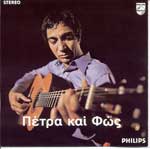 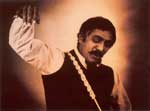 His talent is quickly discovered by the great composers of that time (Theodorakis, Hatzidakis, Xarhakos, Plessas, Spartakos, Markopoulos), with whom he has cooperated, and he has performed their songs in his own particular way, adding strongly his personal style and particular sensibility, which add melody and meaning in the lyrics of the songs… His talent is quickly discovered by the great composers of that time (Theodorakis, Hatzidakis, Xarhakos, Plessas, Spartakos, Markopoulos), with whom he has cooperated, and he has performed their songs in his own particular way, adding strongly his personal style and particular sensibility, which add melody and meaning in the lyrics of the songs…
If the 1960s have made Kostas Hatzis known, the 1970s have designated him as one of the most important composers and performers. During this decade, he wrote the songs “Stone and Light”, “Ouai”, “The son of the spring”, “Thirteen songs”, the amazing “Recital”, the “Human Systems”, the “Kostas Hatzis 79”and the “Elpida-Dakis in K. Hatzis”. Before them there were the songs “Neighborhoods of the World”, “Renaissance Alonisos”, “Kostas Hatzis sings Kostas Hatzis”, “Kostas Hatzis plays and sings with you”.
|
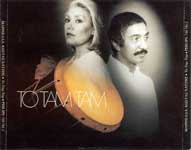 At the end of that decade, Kostas Hatzis, in one of his tours, visits America for concerts to the expatriate Greeks. It is worth noting that his fame as a singer for the peace has reached the White House and the then US President, Jimmy Carter invites him to meet him and congratulate him. He is one of the only Greek artists who have been invited and congratulated for their morality and their work by a US President. At the end of that decade, Kostas Hatzis, in one of his tours, visits America for concerts to the expatriate Greeks. It is worth noting that his fame as a singer for the peace has reached the White House and the then US President, Jimmy Carter invites him to meet him and congratulate him. He is one of the only Greek artists who have been invited and congratulated for their morality and their work by a US President.
The 1980s are sealed with the “Tam-tam”, and the “Meeting” with Marinella, the “Ntaoulierika”, the “Stigmata of the Times” and the “Live Concert in Orfeas”. The decade of 1990s opens with the album “Aleksiou sings Kostas Hatzis”, and then “ROM my love”, “Musical Sacrilege”, “Images of Today”, “Erotica”, “Heartless Powers”, “The last nights the Tsiganes dream”, “Without you” and “In 4/4” follow. In the last five years, he has presented the "Kostas Hatzis Live" album, has participated in the “Jubilee” with Mimis Plessas, the “Moments of Loneliness” and the Live with Antonis Remos.
Kostas Hatzis was and is the contemplation of a restless youth that never gets old... and never goes out…
A NOTE BY KOSTAS HATZIS
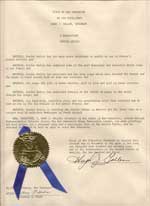 I’ve been writing this kind of ballads since 1956 and there is not one or two reasons for that but many. The main reason is that I belonged in a minority and I felt that for the first time when I went to school. I noticed that I was been discriminated, not because of hate, but because of ignorance, and as I grew up some events have happened that made me wanting to denounce them and to refer to the human rights, even though I didn’t know then about the law that had been laid down by the Society of Nations in 1918. I, with the little knowledge I had, used to say that the God sends the sun and the rain both for the just and the unjust people, therefore I had too a part in this life, whoever I was, a black, a white, a jipsy or... I’ve been writing this kind of ballads since 1956 and there is not one or two reasons for that but many. The main reason is that I belonged in a minority and I felt that for the first time when I went to school. I noticed that I was been discriminated, not because of hate, but because of ignorance, and as I grew up some events have happened that made me wanting to denounce them and to refer to the human rights, even though I didn’t know then about the law that had been laid down by the Society of Nations in 1918. I, with the little knowledge I had, used to say that the God sends the sun and the rain both for the just and the unjust people, therefore I had too a part in this life, whoever I was, a black, a white, a jipsy or...
So, from that time and up to the present, I’ve been denouncing the state that has not taken care of those people’s problems and that allows them to commit every kind of crime, and I’ve been referring directly or indirectly to the human rights and obligations, and I’ve been gibing at myself so that I can approach more easily the ears of some people who may not know that they contribute to the injustice or to any other kind of mental suffering of their fellow beings.
I have sung and I still sing about passion, which is the extension of love, I have sung and I still sing about social issues created by the ineffective global system that transfers the rupture of the human communication (by applying the “divide and rule" principle), but I have also sung about our Maker, his creation, our appreciation for it and our hope for a happy tomorrow here on the face of the earth.
 Even if I lose my voice, I will be singing in my hearth for those same things until I leave this world. Even if I lose my voice, I will be singing in my hearth for those same things until I leave this world.
I want to thank all those who have been inspired and have written and have said through my voice the things they also wanted to say. I thank all those who have helped me call out all the things I had in my heart and I couldn’t write them as I didn’t have the writing weapon to write them, but I had their love and support and they have accepted to write and call out with me and they are still doing that.
Thank you
Kostas Hatzis
|
|
|
|
|
|